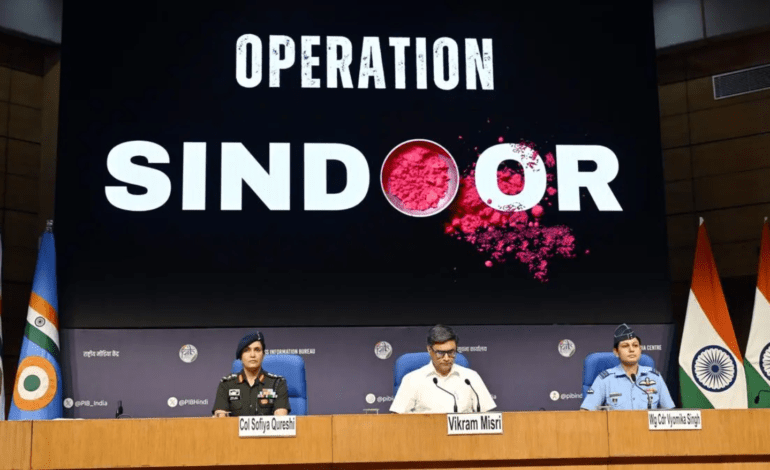
Operation Sindoor—A nation’s response and the road ahead
By: Dr Avi Verma
India launched Operation Sindoor, a series of precision air and missile strikes targeting nine suspected terrorist camps in Pakistan and Pakistan-administered Kashmir. This decisive action was in direct response to the April 22 Pahalgam massacre, where 26 civilians, including Hindu and Christian tourists, were killed in an attack claimed by The Resistance Front, a group linked to Pakistan-based Lashkar-e-Taiba and Jaish-e-Mohammed.
Did India Successfully Avenge the Pahalgam Massacre?
According to Indian military officials, Operation Sindoor resulted in the elimination of approximately 70 militants across the targeted camps. The operation, lasting 25 minutes, was described as a measured response aimed at dismantling terrorist infrastructure without escalating into broader conflict. However, reports from Pakistan indicate civilian casualties, including women and children, and damage to mosques and residential areas. These conflicting narratives highlight the complexities in assessing the operation’s success and its impact on regional stability.
A Long History of Hostility Between Nuclear Rivals
India and Pakistan have had a hostile relationship since their independence in 1947, marked by four wars—in 1947, 1965, 1971, and the 1999 Kargil conflict. The root of their conflict lies in the disputed territory of Jammu and Kashmir, with both countries claiming it in full but controlling only parts. Despite numerous bilateral and international efforts at dialogue, peace has remained elusive. The fact that both countries are nuclear-armed raises the stakes of any escalation significantly. Even limited military engagements, like the 2019 Balakot airstrikes or Operation Sindoor in 2025, risk spiraling into a broader conflict with global consequences.
Potential Retaliatory Actions by Pakistan
In response to Operation Sindoor, Pakistan’s Prime Minister Shehbaz Sharif condemned the strikes as a “cowardly act” and an “act of war,” vowing retaliation at a time and place of its choosing. Pakistan claims to have downed five Indian fighter jets and has initiated artillery exchanges along the Line of Control. The situation remains volatile, with both nations on high alert and the risk of further military escalation looming.
Are We Heading Toward a Full-Fledged War?
The current escalation marks one of the most severe confrontations between India and Pakistan in recent decades. Both nations have suspended diplomatic ties, with India withdrawing from the Indus Waters Treaty and Pakistan threatening to suspend the Simla Agreement. The international community, including the United Nations, the United States, China, and Russia, has expressed deep concern and urged both sides to exercise restraint. Despite these calls, the risk of a broader conflict cannot be dismissed.
Global Stance on the Conflict
International reactions have been mixed. While many nations have called for de-escalation and offered to mediate, countries like Turkey and Azerbaijan have expressed support for Pakistan. The United States has offered to play a mediating role, emphasizing the need for both nations to resolve their differences through dialogue. The global community’s primary concern remains the potential for a nuclear confrontation between the two countries.
Why Is Pakistan Often Associated with Terrorism?
Pakistan has long been accused of harboring terrorist groups that operate in the region. Organizations like Lashkar-e-Taiba and Jaish-e-Mohammed have been linked to numerous attacks in India and are believed to have support networks within Pakistan. Despite international pressure, Pakistan’s efforts to dismantle these groups have been inconsistent, leading to ongoing tensions with neighboring countries.
Conclusion
Operation Sindoor represents a significant moment in India’s ongoing struggle against terrorism. While the operation may have achieved tactical objectives, the broader implications for regional peace and stability are uncertain. As both nations navigate this precarious situation, the importance of diplomatic engagement and international mediation cannot be overstated.
For a detailed overview of Operation Sindoor and its implications, watch the following report: